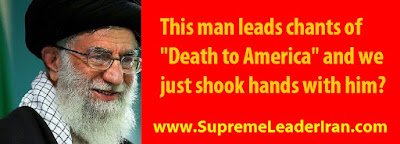 Oil prices jumped 2% Wednesday on OPEC’s indecision and on news of a 4.8 million barrel draw from crude inventory in the latest measured period, according to EIA. High hopes of production increase were fed by recent Saudi chatter, but Iranian dissent should have been transparent. The two nations played an interesting chess match over recent weeks, with both coming out ahead Wednesday, while the West bears economic pain as a result.
Oil prices jumped 2% Wednesday on OPEC’s indecision and on news of a 4.8 million barrel draw from crude inventory in the latest measured period, according to EIA. High hopes of production increase were fed by recent Saudi chatter, but Iranian dissent should have been transparent. The two nations played an interesting chess match over recent weeks, with both coming out ahead Wednesday, while the West bears economic pain as a result.  Our founder earned clients a 23% average annual return over five years as a stock analyst on Wall Street. "The Greek" has written for institutional newsletters, Businessweek, Real Money, Seeking Alpha and others, while also appearing across TV and radio. While writing for Wall Street Greek, Mr. Kaminis presciently warned of the financial crisis.
Our founder earned clients a 23% average annual return over five years as a stock analyst on Wall Street. "The Greek" has written for institutional newsletters, Businessweek, Real Money, Seeking Alpha and others, while also appearing across TV and radio. While writing for Wall Street Greek, Mr. Kaminis presciently warned of the financial crisis.Relative Tickers: NYSE: XOM, NYSE: BP, NYSE: PTR, NYSE: PZE, OTC: RYDAF.PK, NYSE: TOT, NYSE: CVX, OTC: REPYY.PK, NYSE: COP, NYSE: E, NYSE: SSL, NYSE: ECA, NYSE: SU, AMEX: IMO, NYSE: STO, NYSE: CVE, NYSE: RIG, NYSE: PWE, NYSE: CLR, NYSE: NE, NYSE: CXO, NYSE: DO, NYSE: ESV, NYSE: WLL, NYSE: NBR, NYSE: PDE, NYSE: HP, NYSE: QEP, NYSE: ERF, NYSE: RDC, NYSE: CIE, Nasdaq: PTEN, NYSE: SD, NYSE: SLB, NYSE: HAL, NYSE: NOV, NYSE: BHI, NYSE: WFT, NYSE: CAM, NYSE: FTI, NYSE: OIS, NYSE: SPN, NYSE: CRR, NYSE: HLX, NYSE: PXD, NYSE: CEO, NYSE: SNP, NYSE: EC, NYSE: CNQ, NYSE: APA, NYSE: APC, NYSE: DVN, NYSE: EOG, NYSE: CHK.
Iranian and Saudi Oil Chess Play
When OPEC met Wednesday to discuss the oil market at the highly anticipated 159th conference of the consortium, it was widely expected to increase production. Oil prices had receded well enough ahead of the meeting, led in this direction by Saudi speak regarding its vision of a need for greater production. The result of the meeting was a letdown West, as OPEC ministers failed to find consensus on the subject. Rather, oil’s gatekeepers determined to watch the market over the next six months to get a better measure of its supply/demand balance. As we read between the lines, though, we see a clever Saudi, Iranian chess match at play, with each nation getting exactly what it wanted in the end.
Economic recovery started commodity markets, including energy, on the route of higher pricing. Supported by stalwart demand from emerging giants China and India, a floor held for oil long into economic downturn. Still, as the economic value destroying crises in the U.S., the U.K. and throughout Europe hit fever pitch in early 2009, oil joined all securities assets in panicked trading down to under $40. Thankfully, that panic was short lived, as stocks and commodities both swiftly started on recovery. Only real estate was left to languish further.
Through the early part of 2011, a political fervor gathered steam across North Africa and into the Middle East. This revolutionary movement set instability into the factor pool within the critical oil producing region. It started the already trending higher oil on a burst above $100 from about $90 at the turn of the year. On several occasions in April 2011, oil prices exceeded $120 a barrel, and gasoline prices at the pump in the United States touched $4, setting an unexpected new obstacle in place for a vulnerable economic recovery.
Within his
opening remarks to the OPEC ministers, the Conference President and Acting Minister of Petroleum of the Islamic Republic of Iran HE Mohammad Aliabadi, attributed some of the volatility in oil prices through spring to Western trading speculators. He said that it was both the responsibility of supplier nations and consumer bodies to maintain balance and order in oil pricing. OPEC determined there was a speculative premium of at least $15 to $20 in oil. Aliabadi’s accusative statement, not unexpected from an Iranian government representative, ignores the fundamental driver of the nascent volatility, namely civil unrest in Libya and Bahrain, and the risk of its spread to more major producers.
His statement, it seems, gives clue to the basis of Iranian dissent against increasing oil production. Some basis needed to be fit to a predetermined decision from the Iranians, and so why not blame the same group often targeted by the Europeans, speculating profiteers. This argument seemed to win some approval from a biased group – biased to favor higher oil prices. It gave broad reason to maintain current production over increasing levels of activity, an action that should ease some pressure from prices.
But the Iranians are transparent anyway, and have always favored whatever drives higher prices or harms the United States. They see rich pricing as a win/win, driving greater revenues and strangling a threatening West. They ignore, however, the higher cost of gasoline their citizens end up paying for a resource born of domestic earth. This of course adds to its citizenry’s discontent with government, especially after the strained nation, burdened by U.N. sanctions, was forced to lift government subsidies for gasoline buyers these last years.
The Saudi strategy clearly illustrated the brilliant player, as it had vision, seeing moves ahead of the Iranians, and the Americans as well. Over recent weeks, Saudi Arabia, perhaps at the behest of the United States and other Westerners, began publicly declaring its view of need for increased oil production. While I suppose we could attribute the action to U.S. prodding or sincerity, I prefer conspiracy theory.
The Saudi’s were humiliated by WikiLeaks exposing its suggestions to the United States to attack a devious Iran, and to “cut off the head of the snake.” Since this disclosure, which was dangerously lost within the thousands of less lethal breaking news items, the Iranians see the intense interests and activity of their regional rival much more clearly. This, no doubt, played importantly in Iran’s latest prodding of Saudi Arabian and Bahraini Shiites to rise up against their governors.
Besides its exposure to the eyes of the Iranians, Saudi PR has never been in more need of clean up with regard to U.S. relations, and so the peculiarly western allied Arabs become the good guys in the week’s hopeless, predetermined losing battle. Nothing is lost in their positioning for production, but something is gained in the eyes and hearts of the west in seeming to seek it. Meanwhile, oil income streams are well preserved, at least for as long as demand destruction takes to destabilize the West. Finally, and perhaps most importantly to the Arabs, the Saudis must be grinning today, seeing the snake sticking its neck out a little further.

Article interests energy investors including Exxon Mobil (NYSE: XOM), BP (NYSE: BP), PetroChina (NYSE: PTR), Petrobras (NYSE: PZE), Royal Dutch Shell (OTC: RYDAF.PK), Total (NYSE: TOT), Chevron (NYSE: CVX), Repsol (OTC: REPYY.PK), ConocoPhillips (NYSE: COP), Eni SpA (NYSE: E), Sasol (NYSE: SSL), Encana (NYSE: ECA), Suncor (NYSE: SU), Imperial Oil (AMEX: IMO), Statoil (NYSE: STO), Cenovus (NYSE: CVE), Transocean (NYSE: RIG), Penn West Petroleum (NYSE: PWE), Continental Resources (NYSE: CLR), Noble (NYSE: NE), Concho (NYSE: CXO), Diamond Offshore (NYSE: DO), Ensco (NYSE: ESV), Whiting Petroleum (NYSE: WLL), Nabors (NYSE: NBR), Pride International (NYSE: PDE), Helmerich & Payne (NYSE: HP), QEP Resources (NYSE: QEP), Enerplus (NYSE: ERF), Rowan (NYSE: RDC), Cobalt (NYSE: CIE), Patterson UTI (Nasdaq: PTEN), SandRidge (NYSE: SD), Schlumberger (NYSE: SLB), Halliburton (NYSE: HAL), National Oilwell Varco (NYSE: NOV), Baker Hughes (NYSE: BHI), Weatherford International (NYSE: WFT), Cameron (NYSE: CAM), FMC Tech (NYSE: FTI), Oil States International (NYSE: OIS), Superior Energy (NYSE: SPN), Carbo Ceramics (NYSE: CRR), Helix Energy (NYSE: HLX), Pioneer (NYSE: PXD), CNOOC (NYSE: CEO), China Petroleum and Chemical (NYSE: SNP), Ecopetrol (NYSE: EC), Canadian Natural Resources (NYSE: CNQ), Apache (NYSE: APA), Anadarko (NYSE: APC), Devon (NYSE: DVN), EOG (NYSE: EOG), Chesapeake (NYSE: CHK).
Please see our disclosures at the Wall Street Greek website and author bio pages found there. This article and website in no way offers or represents financial or investment advice. Information is provided for entertainment purposes only.
Labels: Editors_Picks, Energy, Iran, Oil, OPEC, Saudi_Arabia






























